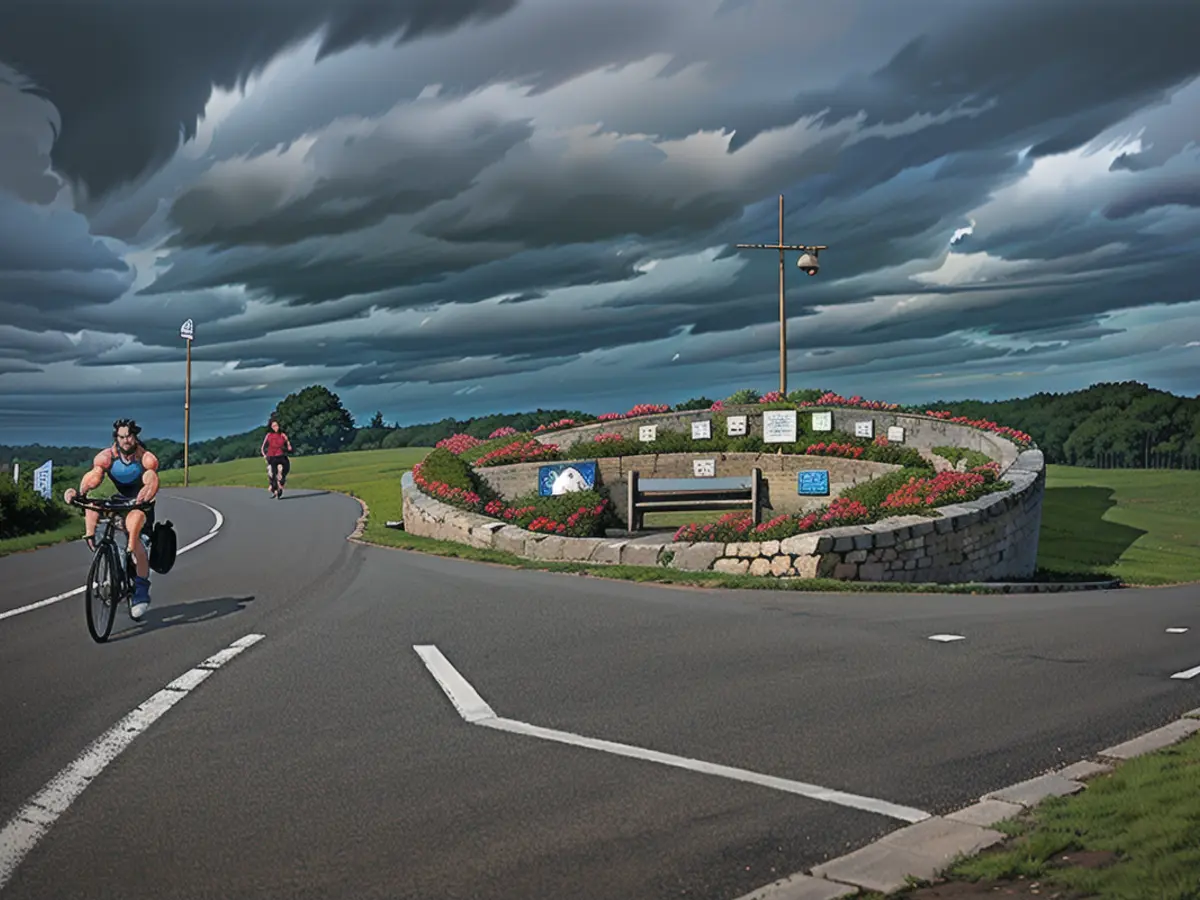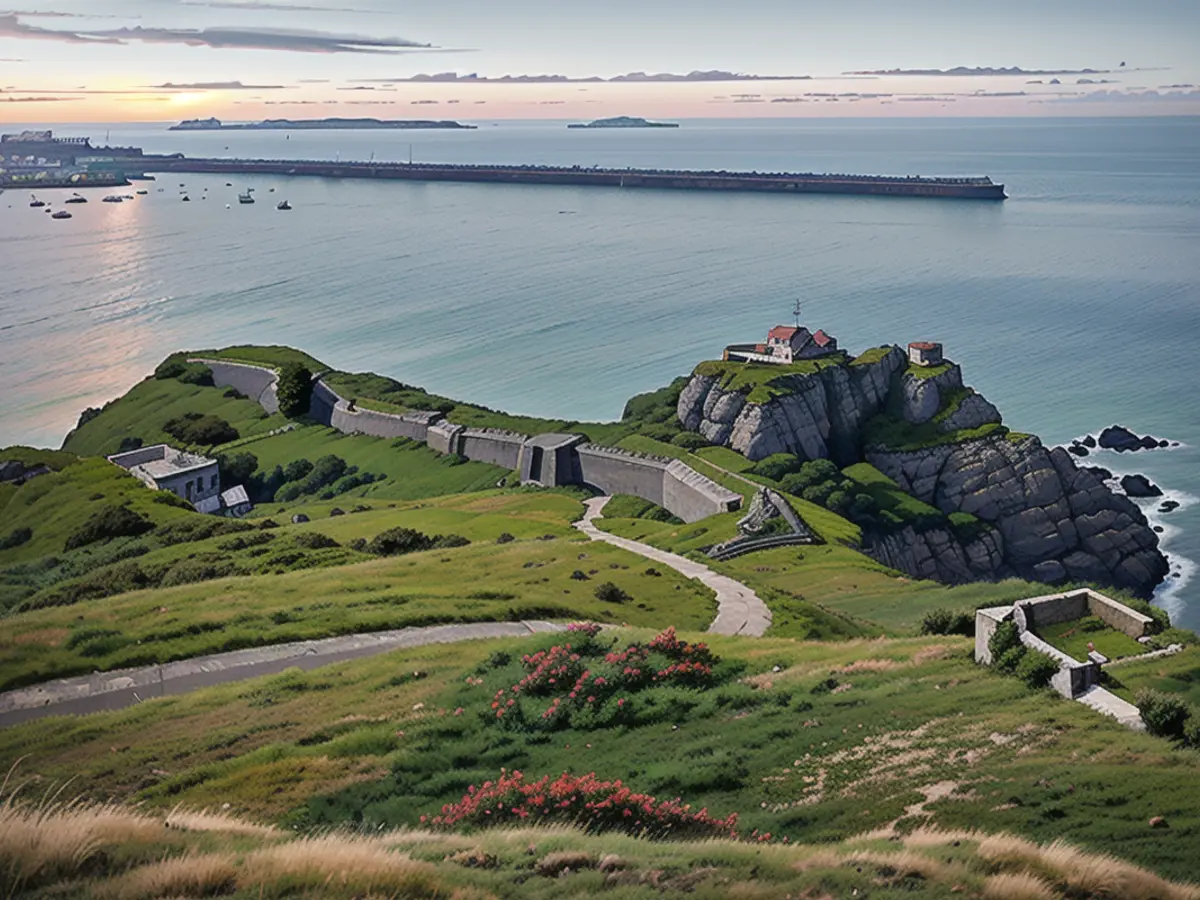A tranquil British isle served as the location for Nazi-inflicted horrors, recent investigations disclose.
A new investigation, spearheaded by the UK's Special Envoy for Post Holocaust Issues, Eric Pickles, has set out to determine the precise number of deaths of prisoners and laborers on the island of Alderney. This endeavor aims to dismantle the conspiracy theories and incorrect information shrouding the island.
The findings of this inquiry were released on Wednesday. They indicate that more deaths occurred than initially recorded after the release of the labor camps, but there was no substantiation of a "mini-Auschwitz."
This inquiry also probed why the Nazi offenders, most of whom managed to evade justice, were never tried in Britain.
Measuring around three square miles, Alderney was under Nazi control for the majority of World War II. During this time, three forced labor camps and a concentration camp known as Lager Sylt were constructed.
Agent provocateur Pickles described Alderney as the "most westerly concentration camp in the Third Reich," sparking questions on the scale of the atrocities committed on the island, both among locals and worldwide. The exact number of victims has remained ambiguous up until now.
The sole British territories to be occupied by the Germans during World War II, not including Alderney, were Jersey and Guernsey. In contrast to these islands, Alderney was almost entirely depopulated, making it challenging to locate extensive wartime records.
This lack of records, according to Pickles, has fueled unsubstantiated allegations regarding Alderney and the war crimes that occurred there.
"Claims of mass murder that would usually be examined cautiously have been unquestioningly accepted as a fact," he expressed. "Second- or third-hand accounts of atrocities, lacking any supporting evidence, are presented as unassailable truths. What transpired on Alderney was deplorable enough, featuring brutality, sadism, and murder; there's no need for embellishment."
'Untainted reality'
Post-liberation, official statistics from a post-war examination suggested the death toll on the island stood at 389.
Doubt about these statistics has persisted for years. Various historians, members of the Jewish community, and members of the public have rendered their estimates anywhere from hundreds to thousands.

Further, allegations have been circulating that the true extent of what happened on the island might have been purposely hidden by the British authorities.
However, the inquiry refutes these assertions. They determined that the death toll on Alderney likely did not surpass 1,134, with realistic estimates situating between 641 and 1,027 deaths. Additionally, at least 97 people passed away and one vanished during transit to and from the island.
The number of prisoners or laborers sent to Alderney under Nazi rule ranged somewhere between 7,608 and 7,812, the panel concluded.
Examining Alderney's camps, the inquiry ascertained that several characteristics they shared with those on the continent. Laborers endured inhumane conditions and were expected to work long hours on perilous construction projects. Beatings, maiming, torture, and, in certain cases, executions were commonplace for these individuals.
Despite the inquiry's findings, the panel could not locate any compelling evidence supporting the argument that thousands of people lost their lives on the island.
Unsubstantiated claims that Alderney was a "mini-Auschwitz" and hosted an extermination center were unfounded, the inquiry concluded.
"Prisoners were dealt with in reprehensible ways, and life was devalued, but Alderney was not a 'mini-Auschwitz,'" Pickles stated. "There was no extermination center on the island."
Pickles contends that exaggerated death tolls in the hands of the Nazis could be damaging, playing into the hands of Holocaust deniers.
"At a time when parts of Europe are rewriting their histories through the Holocaust, the British Isles must reveal the unadulterated truth," he said. "Numbers matter. It's equally problematic to augment the number of deaths attributable to the Nazis as it is to minimize them. Exaggeration benefits Holocaust deniers and discredits the 6 million victims."
He added, "Exaggeration cannot harm us."

"Disturbing oversight"
A supplementary section of the inquiry dealt with the failure to prosecute war crimes in Alderney, a situation it labeled an "egregious injustice."
The cause of this injustice stemmed from the British government's choice to transfer the case to the Soviet Union after World War II, as most of the victims were Soviet nationals.
A study led by Anthony Glees, a knowledgeable academic and counselor to Pickles, uncovered a "series of cover-ups" by the British government. They transferred all of Alderney's files of evidence to the Soviet Union via the United Nations War Crimes commission on September 12, 1945.
The USSR chose to disregard the evidence collected regarding the cruel treatment and murder of victims by certain individuals, as mentioned by Glees. Unfortunately, the majority of these perpetrators were never brought to trial.
Glees alleges that the British government has deliberately kept this information concealed from public knowledge. He is urging the government to own up to its actions and apologize to those affected.
"It's baffling that Britain allowed Nazi war criminals to go unpunished for their abhorrent activities on British land, which impacted over 30 different nations," Glees remarked.
"Rather than bringing these criminals to justice, the British authorities unceremoniously passed on the amassed evidence of the 'Alderney Case' to the USSR. This was done despite the fact that the USSR had not even asked for it, and therefore appears to go against Britain's international treaty commitments."
This failure to hold Alderney's war criminals accountable has stolen justice from their victims and their families.
Pickles, meanwhile, describes the absence of accountability for the perpetrators as a disgrace on the legacy of various British governments.

Read also:
- This will change in December
- Dikes withstand water masses so far - Scholz holds out the prospect of help
- Fireworks and parties ring in 2024 - turn of the year overshadowed by conflicts
- Attacks on ships in the Red Sea: shipping companies avoid important trade route
The UK's involvement in addressing the historical events on Alderney extends beyond the investigation itself, as Eric Pickles also aims to ensure that those responsible for war crimes committed on the island are brought to justice.
Additionally, the UK's role in the handling of war crimes evidence collected during the inquiry has received scrutiny, with allegations of cover-ups and the transfer of evidence to the Soviet Union without due consideration being raised.
Source: edition.cnn.com







